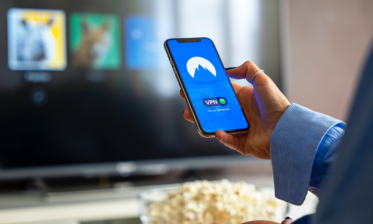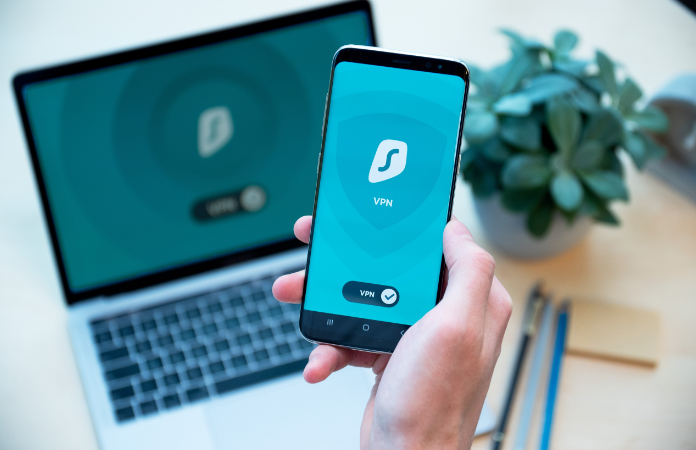The internet is an essential part of our everyday lives, both for work and leisure activities. But did you know that without the proper protection, your online activity can easily be tracked and monitored? That’s where VPNs come in—Virtual Private Networks (VPNs) are a secure connection to the internet that hide your online activity from prying eyes. In this blog post, we’ll discuss what a VPN is, why everyone should use one, and how it can help protect your data. You’ll also learn about the different types of VPNs available, their features, and what you should look for when choosing a provider. By arming yourself with this knowledge, you can ensure that your private information stays private while you’re browsing the web.
What is a VPN?
A VPN is a private network that uses a public network (usually the Internet) to connect remote sites or users together. Instead of using a dedicated, real-world connection like a leased line, a VPN uses “virtual” connections routed through the Internet from the company’s private network to the remote site or employee.
VPNs are used to provide secure, encrypted connections for confidential communication over untrusted networks like the Internet. They can also be used to simulate a Wide Area Network (WAN) link between two sites. A VPN can either connect two LANs (Local Area Networks) or can connect individual computers to an existing LAN.
Most people who use a VPN service do so in order to protect their online activity from prying eyes. By routing your traffic through an encrypted tunnel, a VPN hides your traffic from your ISP and any government agencies that may be monitoring your online activity. This is especially important if you’re using public Wi-Fi, since anyone on the same network can snoop on your traffic.
How do VPNs work?
Virtual private networks, more commonly known as VPNs, are tools used to add privacy and security while online. When most people think of security tools, they think of antivirus software or firewalls. However, these only protect your device from external threats. Once your traffic enters the public internet, it is no longer secure. This is where a VPN comes in.
A VPN encrypts your traffic and routes it through a server in another location. This makes it difficult for anyone to track or intercept your traffic. It also hides your real IP address, making it harder for websites to know who you are and where you’re located.
There are many different ways to set up a VPN. You can use a stand-alone app, or set up a VPN on your router. Stand-alone apps are the easiest to use, but they can be less reliable than router-based VPNs. Router-based VPNs are more complex to set up, but they offer better security and can be more reliable.
The benefits of using a VPN
A VPN, or Virtual Private Network, is a technology that allows you to create a secure connection over a less-secure network. This can be useful when you’re trying to protect your privacy online, or access geo-blocked content.
There are many benefits to using a VPN, including:
1. Improved security and privacy. When you connect to the internet through a VPN, your traffic is encrypted. This means that anyone who tries to intercept your data will not be able to read it. Additionally, your IP address will be hidden from any websites you visit, giving you an extra layer of privacy.
2. Access to geo-blocked content. If there are websites or services that are only available in certain countries, you can use a VPN to access them. For example, if you’re trying to watch a show that’s only available on Netflix US, you can connect to a US-based VPN server and access the content as if you were in the United States.
3. bypassing censorship. In some countries, the government censors certain websites or services. By connecting to a VPN server in another country, you can bypass these restrictions and access blocked websites or services.
The best VPNs for different needs
There are many reasons to use a VPN, and different people will have different needs for a VPN. Some people need a VPN for privacy, others for security, and others for bypassing geo-restrictions. The best VPNs for different needs are:
For Privacy:
There are many VPNs that offer great privacy protection. ExpressVPN is one of the most popular VPNs for privacy. It has a no-logging policy, which means that your data is never stored or monitored. NordVPN is another great option for privacy, as it also has a no-logging policy. PrivateVPN is another good choice for those who want to keep their data private, as it has strong encryption and keeps no logs.
For Security:
If you’re looking for a VPN for security, then you’ll want to choose one with strong encryption. ExpressVPN is a good choice, as it uses AES-256 bit encryption. NordVPN is another good option, as it uses 2048-bit encryption. PrivateVPN is also a good choice if you’re looking for security, as it uses 256-bit encryption.
For Bypassing Geo-Restrictions:
If you need to bypass geo-restrictions, then you’ll want to choose a VPN with servers in multiple countries. ExpressVPN has servers in over 94 countries around the world. NordVPN also has servers in multiple countries, allowing you to access blocked content from anywhere in.
How to set up a VPN
A VPN, or Virtual Private Network, is a tool that allows you to create a secure connection to another network over the Internet. A VPN can be used to access region-restricted websites, shield your browsing activity from prying eyes on public Wi-Fi, and more.
What do you need to set up a VPN? The answer may vary depending on which service you use, but in general, you’ll need three things:
• A VPN service: This is the company that will provide you with an app and instructions for setting up a connection. Some popular options include NordVPN, TunnelBear, and ExpressVPN. There are many others to choose from; just make sure whichever one you select has servers located in the country or countries you want to connect to.
• An account with your chosen VPN service: You’ll need to sign up and pay (if applicable) before you can download the app and get started. Be sure to have your payment method ready when you sign up – most VPN services accept credit cards and PayPal.
Tips for using a VPN
A Virtual Private Network (VPN) is a private network that extends across a public network or the Internet. It enables users to send and receive data while remaining anonymous and secure online. A VPN can be used to protect your privacy, unblock websites, and encrypt your traffic. Here are some tips for using a VPN:
1. Choose a reputable VPN service. There are many free and paid VPN services available. Do your research to find a reputable service that meets your needs.
2. Download and install the VPN software on your device. This will usually be provided by the VPN service.
3. Connect to a server in the country of your choice. This will allow you to appear as if you are located in that country, allowing you to access geo-restricted content.
4. Use caution when connecting to public Wi-Fi networks. When using a VPN, only connect to trusted networks such as those at home or work.











